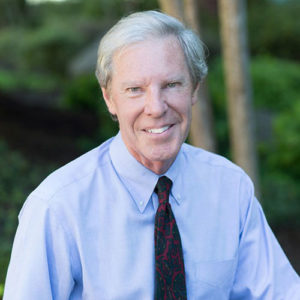
Timothy V. Ramis
In Memoriam
In the Spring of 1981, few facilities in Oregon provided housing with integrated services for people with intellectual and developmental disabilities, “IDD”. Changes at the federal level created more concern that programs like Medicaid and Social Security Disability Income would soon face funding cuts resulting in greater hardships for family members with serious handicaps. Being inventive and daring can lead people to create what seems impossible. In the beginning, a small number of community-based groups including the Epilepsy Association of Oregon and United Cerebral Palsy of the Northwest banded together with three motivated families and individuals to create a new nonprofit organization named Specialized Housing, Incorporated or “SHI.” Tim Ramis was one of the early Board members who saw the need in the community and was committed to creating something out of nothing.
